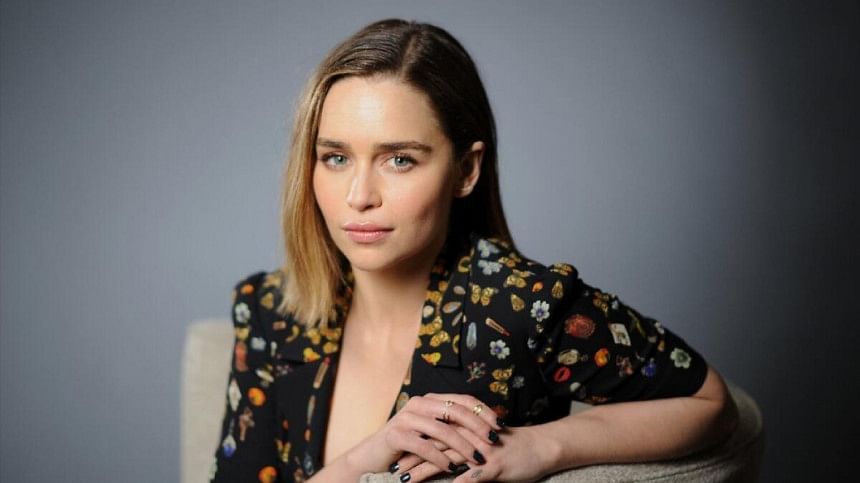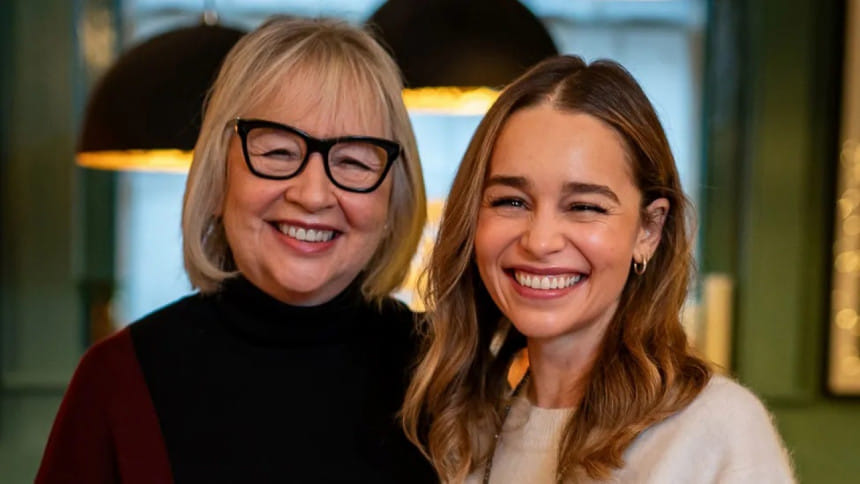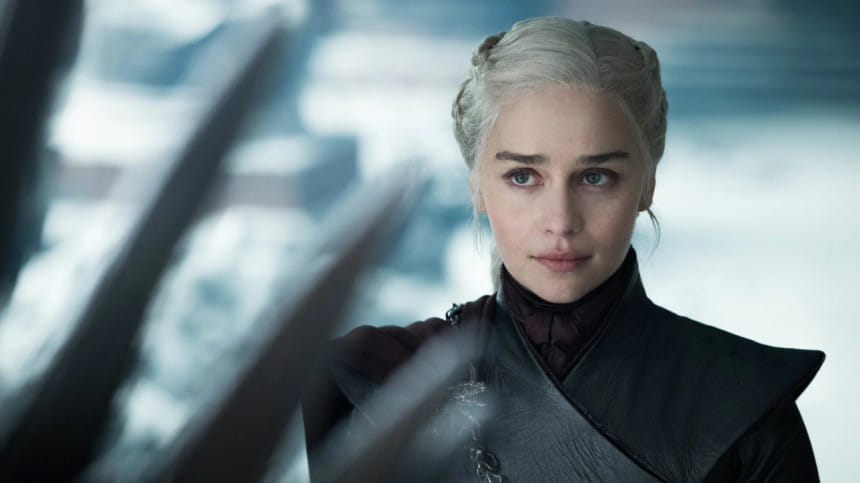‘GOT’ star Emilia Clarke gets MBE for raising awareness

Actress Emilia Clarke has said the MBEs awarded to both her and her mother in the New Year Honours are "amazing" for raising awareness about brain injuries.
The Game of Thrones star suffered two brain haemorrhages in her 20s, then set up a charity in 2019 with mum Jenny. They have now been appointed MBEs for services to people with brain injuries, according to a BBC report.

"I can say for both of us that the MBE is for the cause and the charity, and for that it's wicked. For that, it's amazing," Emilia told BBC News.
"And who doesn't want to go to the palace? I've asked if I can take my dog, but apparently, you can't," she added.
The pair are believed to be the first mother and daughter to receive the same award in the same honours list.
Emilia, 37, said it was "a miracle" that she was here to talk about the haemorrhages she suffered in 2011 and 2013. The first happened when she was at the gym just after she had finished filming season one of Game of Thrones, and left her fighting for her life. However, she said she discovered there was inadequate support and rehabilitation after leaving the hospital.

"In hospital, every day you're told you're going to die. Every day, you're watched like a hawk, especially in a brain ward. You're woken up every two hours. It's this high-stakes scenario. And then three weeks to a month later, you're let out."
She was so afraid of being discharged that she "found a reason" to go back to hospital the next day, she said. "I was fine, but I was so terrified to suddenly be at home, and I was at home with a loving family. That's not [the same for] everyone and the fear that you're left with…I had this incredible nurse, but I was one of 400 patients that she had. She couldn't give me more than half an hour every three weeks. This is a day-to-day experience of living after a brain injury."
"Then, when I had my second brain haemorrhage, I was like, I've got to do something big. Looking at the fact that I've survived two of these with no repercussions– I'm here for a reason; let me do something about it. That was when we started circling around the idea of creating a charity."
'People feel ashamed'
The pair set up SameYou, with Jenny– who has also previously had brain surgery to remove an aneurysm– as chief executive.
"We realised that very few people had access to long enough rehabilitation or early enough rehabilitation," Jenny said.
"You are expected to get better after a certain period, and that, sadly, is not the reality for the majority of people. Even if you have a very mild brain injury, it's a really major trauma."
Support for brain conditions is a long way behind that for some diseases, and "brain injury and recovery need to be taken much more seriously" - including by the government, she said.
SameYou has funded projects like a trial of pioneering online neurorehabilitation called NROL, in Lancashire, as well as work with University College London and the Royal College of Nursing Foundation.
Emilia, who is also known for films including "Terminator Genisys", "Me Before You" and "Solo: A Star Wars Story", said she was proud of raising awareness after initially keeping her experiences out of the public eye.
"I kept my story a secret. I didn't want to tell anyone. I didn't want it to be a celebrity sob story. The single most important thing that we've done is at least build the first brick of a foundation of a platform to talk about this, because it's a shameful thing - people feel ashamed when they've got it. You can't comprehend it... and you can't explain to someone what the intricacies of it are."
"The second thing we're most proud of is NROL, which is the online rehabilitation that we began in Covid. Now we're trying to get the funds to roll out for it to be more accessible, because the feedback and the results have been phenomenal."
Emilia said she has "no major repercussions" from her haemorrhages, but does feel some effects, including fatigue. "I work through it, and it's fine. It's unquantifiable and undiagnosable, but the fatigue is a real thing, And I'm inclined to say that anxiety is more prevalent within me since the brain haemorrhage, but what else happened when I got a brain haemorrhage was I started Game of Thrones, so anxiety was going to happen any which way."
"There are times when someone will say: 'Do you remember that party you went to you when you were 19?', and I'll go, 'I have no recollection of that whatsoever'. Maybe that's a bit that's gone in my brain. I have those conversations in my head daily. But in the grand scheme of things, what I went through and the fact that I'm here talking to you is nothing short of a miracle. That can happen, but it's not the norm for people with brain injury, so I feel it's my duty to be able to use my vaguely working brain to talk about it."
The actress also paid tribute to her mother in light of the news about their MBEs.

 For all latest news, follow The Daily Star's Google News channel.
For all latest news, follow The Daily Star's Google News channel. 










Comments